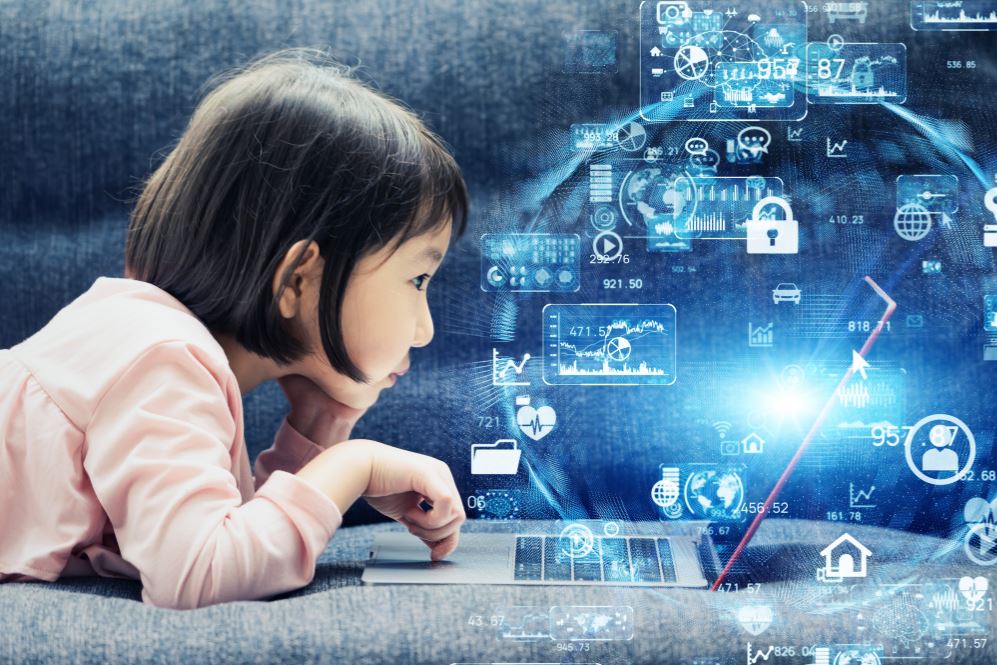In the rapidly evolving landscape of the 21st century, the digital era has fundamentally reshaped our approach to life. Many of us have tweeted, blogged, YouTubed, face timed, texted, crowd sourced, wiki-ed and socially networked to the edge of our sanity. As technology advances at an unprecedented pace, we face both new opportunities and challenges. There is an on-going debate on whether digital technology will solve the world’s problems or artificial intelligence will bring about the end of civilization. The fear of change, from the familiar to the new, often leads to paranoia. Adapting to these new forces itself is crucial to learning and education.
Albert Einstein famously said, “Education is not just the learning of facts but the training of the mind to think.” Traditional education, which emphasizes memorization and standardized testing, is increasingly challenged by the growing emphasis on digital literacy, critical thinking, and adaptability. In 1922, American sociologist William F. Ogburn introduced the concept of “cultural lag,” highlighting how material culture advances more rapidly than non-material culture. Today, advancements in technology and access to digital systems have created a significant generational divide between digital natives and digital immigrants, affecting social, cultural behaviour and attitudes towards education. This shift compels us to re-evaluate the core purpose of education: Do we prepare students merely to pass exams and secure jobs, or do we equip them with skills for lifelong learning and innovation?
The digital era presents several challenges for education. Unequal access to technology and high-speed internet can exacerbate educational disparities between different socioeconomic groups. Data protection and online safety are major concerns as institutions adopt digital tools. Engaging students in a virtual environment can be difficult, as it may lack the interactive and social aspects of traditional classrooms. Ensuring the quality and consistency of digital content is challenging due to the vast range of materials available. Excessive screen time can lead to physical and mental health issues, as seen in Japan’s Hikikomori phenomenon describe as ‘loner’ or the ‘modern day hermit’ in South Korea, where youths become isolated in virtual environments. Additionally, a skill gap exists between digital-native students and digital-immigrant teachers, making it crucial to teach students how to critically evaluate online sources and use digital tools responsibly.
Despite these challenges, the digital era offers significant educational opportunities. Online courses and MOOCs from platforms like Coursera, edX, and Khan Academy provide access to global educational resources. E-libraries and digital databases expand research and learning beyond traditional textbooks. Interactive tools, software, and apps foster engaging learning experiences through simulations and educational games. Digital tools enable global collaboration, promoting cross-cultural exchange and diverse perspectives. Supplementary materials such as YouTube videos and educational podcasts offer additional insights on various subjects. Virtual classrooms and remote learning platforms like Zoom and Google Classroom make education accessible to those unable to attend in person. Websites like LinkedIn Learning and Udacity focus on skill development and professional growth, enhancing accessibility, flexibility, and personalized learning.
As developed nations push the boundaries of digital integration in education, it is crucial for all stakeholders—students, parents, teachers, and institutions—to redefine and align their objectives to ensure that education remains relevant and effective in preparing future-ready individuals. This h delves into the necessary adjustments to meet the demands of an ever-changing world.
In today’s job market, while academic success is important, balancing quality education with practical skills that enhance employability is increasingly essential. This approach ensures that students are not only qualified but also capable of thriving in diverse professional environments. Many students view education as a means to acquire skills for immediate employment, while parents often prioritize career-oriented outcomes. Aligning these attitudes with the broader educational goal of nurturing well-rounded individuals who are not only job-ready but also equipped for lifelong learning is crucial.
Developed countries are leveraging technology to enhance learning outcomes and advance the global economy. India, too, has adopted the National Education Policy 2020, which emphasizes integrating technology into the education system to make learning more accessible, engaging, and effective. However, we must remain vigilant about how these technologies, new media, and artificial intelligence impact our brains, relationships, parent-child interactions, politics, education system, and individual and community identities. The digital culture should not make us complacent or compromise the quality of education. We need to look beyond the horizon to ensure that AI serves humanity rather than making humans dependent on it.













1 thought on “Education: Defining Our Purpose in the Brave New World of the Digital Era”
One defining aspect of Digital Age is its fast-paced environment. To be able to cope with the digital-native youngsters or students, especially teachers need more time and even extra effort in digitally self development by learning the continuously updating skills, taking online courses, trainings, tutorials, etc. This age pushes people to catch up with it.
Comments are closed.